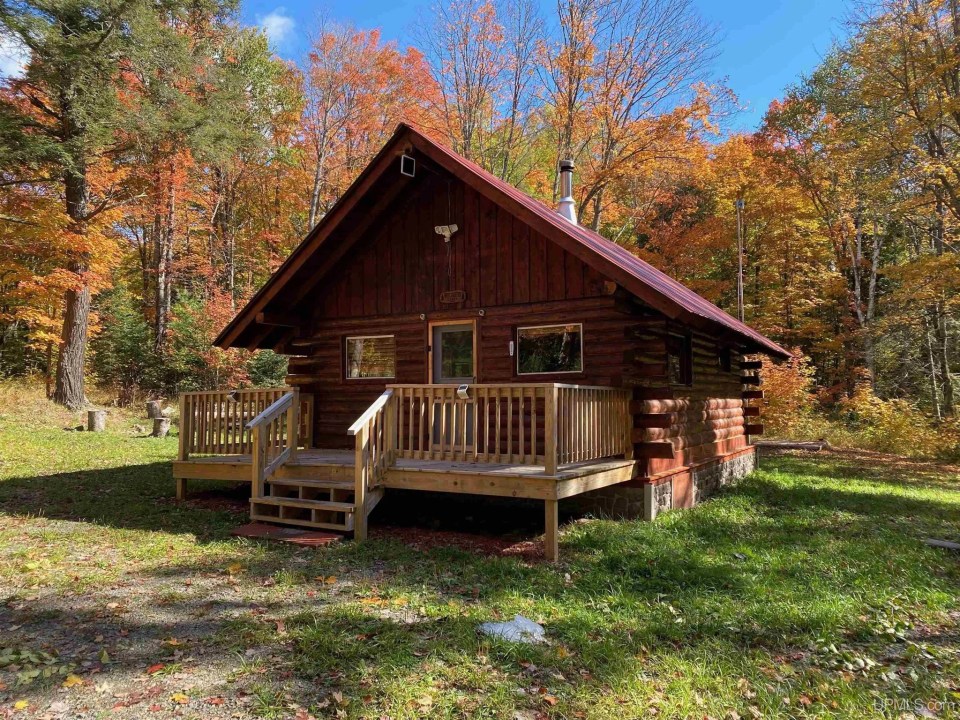Cabins In Upper Peninsula Michigan For Sale – Business brokers play a key role in facilitating the transaction by acting as intermediaries between the buyer and seller. The possibilities are endless, and the result is often something more unique and personal than what could be bought new. For many, purchasing second-hand goods is not just about saving money, but about embracing sustainability, supporting a circular economy, and contributing to a more environmentally conscious world. Buying second-hand goods has numerous advantages. When people choose quality goods, they are choosing longevity over convenience, enduring craftsmanship over temporary trends, and often, a timeless aesthetic over what is in vogue today. For many, owning a quality product means owning a piece of history, a connection to something larger than themselves. One of the primary reasons people turn to second-hand goods for sale is financial. The internet, for example, has created a space where anyone can buy or sell almost anything, from physical products to intangible services. For many, purchasing second-hand goods is not only a practical and affordable choice but also an environmentally conscious one. In addition to individual sales, online marketplaces often feature businesses and professional sellers who specialize in second-hand goods, providing buyers with a curated selection of high-quality items. Electronics are another category of second-hand goods that have seen a rise in popularity. In many cases, sellers may work with business brokers, financial advisors, or accountants to help value the business and identify potential buyers. Online platforms like Etsy, for example, have given artisans a global audience for their high-quality handmade goods. By buying second-hand goods, consumers can feel good about supporting their communities and giving back to those in need. For buyers, the process typically starts with identifying a business that aligns with their interests, skills, and goals. This sense of connection can also extend to the broader culture of quality goods, where consumers and creators share a commitment to excellence and a desire to preserve the craft and tradition behind these products. To mitigate this risk, buyers should ask for detailed photos, read product descriptions carefully, and inquire about the condition of the item before making a purchase. The buying and selling of companies, brands, and even entire industries can reshape economies, alter job markets, and redefine how goods and services are delivered. Another key benefit of second-hand goods is their positive impact on the environment. The ability to share knowledge, ideas, and resources has empowered individuals in ways that were previously unimaginable.

Upper Peninsula Michigan Cabins for Sale 91 Properties LandSearch
Huge selection of stylestop architects & designs10% military discount

Michigan's Upper Peninsula MoveIn Ready Tiny House For Sale 48K
Huge selection of stylestop architects & designs10% military discount

Great cottage across the street from South Manistique Lake in Michigan
Huge selection of stylestop architects & designs10% military discount

Secluded Upper Michigan Cabin on private Roscoe Lake, 233 Acres
Huge selection of stylestop architects & designs10% military discount

Sold Circa 1980 Rustic Cabin For Sale on 40 Acres Upper Peninsula MI
Huge selection of stylestop architects & designs10% military discount

Upper Peninsula, MI Cabin For Sale 47K
Huge selection of stylestop architects & designs10% military discount

Circa 1920 Riverfront Upper Peninsula Cabin For Sale 0n 1.52 Acres in
Huge selection of stylestop architects & designs10% military discount

100K Sunday Michigan's Upper Peninsula Log Cabin for Sale on 10+ Acres
Huge selection of stylestop architects & designs10% military discount

Cheapish Circa 1926 Michigan Upper Peninsula Home For Sale 71K
Huge selection of stylestop architects & designs10% military discount

Moran Vacation Rental VRBO 355275 2 BR Upper Peninsula Cabin in MI
Huge selection of stylestop architects & designs10% military discount
Whether it’s a rare collectible, a discontinued item, or a vintage piece of clothing, online platforms offer a global marketplace where buyers and sellers can connect over products that may not be easily found elsewhere. Social media platforms, for example, offer users a chance to buy into their own identity, to curate a version of themselves that is more appealing, more desirable, more marketable. The story behind the item becomes part of its value, adding an emotional dimension to its physical form. Second-hand goods for sale have become an integral part of today’s economy, a trend that transcends geographic, economic, and cultural boundaries. For many, purchasing second-hand goods is not only a practical and affordable choice but also an environmentally conscious one. Both the buyer and the seller are seeking the best possible terms, and finding common ground can be a challenge. Take, for example, a high-quality piece of furniture — a well-crafted sofa or dining table can last for decades if maintained properly. The growing interest in second-hand goods can also be attributed to shifting cultural attitudes toward consumption. Online platforms also offer the convenience of searching for specific items, whether it’s a rare collector’s item, a particular brand of clothing, or a piece of furniture that fits a specific design style. From designer labels to quirky, eclectic finds, second-hand clothing offers a wealth of variety and style at a fraction of the price of new items. A house can be bought, a car can be sold, a watch can be pawned. On the other hand, traditional industries such as brick-and-mortar retail or manufacturing may face challenges, with many businesses in these sectors looking to sell or transition due to changing market conditions. In the end, the real challenge is to navigate this world — to understand the forces of commerce that shape our lives, while holding onto those things that remain beyond the reach of money. The result is a society that increasingly prioritizes consumption over connection, profit over meaning, and exchange over understanding. The production of new goods often requires significant resources, such as raw materials, energy, and labor, while also generating waste and contributing to pollution. When we begin to view everything through the lens of commerce, it’s easy to lose sight of the things that make life worth living — the moments that aren’t for sale, the experiences that can’t be bought. Self-help books and motivational speakers promise to sell us the tools to fix ourselves, to buy into a better version of who we could be. Quality goods for sale are not just limited to luxury items or high-end brands. This leads to the accumulation of waste that ends up in landfills, contributing to pollution and the depletion of valuable resources. Once an agreement is reached, the final step is the legal transfer of ownership.
It involves an in-depth understanding of the business’s financials, operations, and market position. In this world, emotions can feel like products, available to be consumed at will and disposed of when they no longer serve a purpose. Upcycling is a great way to make the most out of second-hand goods, adding both value and meaning to the items that are being repurposed. Whether it's old furniture that no longer fits with their style, clothing that no longer fits, or electronics they no longer use, selling second-hand items allows individuals to recoup some of the money they spent on these goods. One of the primary reasons people turn to second-hand goods for sale is financial. The rise of online platforms has transformed the way second-hand goods are bought and sold. The very notion that everything can be bought and sold creates a society where inequality is not just accepted, but ingrained in the very structure of the economy. Relationships can become transactional, where each party enters into an agreement based on what they stand to gain. These platforms provide a convenient way for sellers to connect with potential buyers, set their prices, and arrange for shipping or pick-up. This connection between consumers and the creators of quality goods is something that’s been fostered for centuries. Unlike mass-produced items that may become outdated or fall apart with minimal use, quality products are designed to endure. The digital age has also transformed the way things are bought and sold. As more people embrace the idea that everything has value, second-hand goods will continue to be a central part of the way
Quality goods for sale have always held a special place in markets around the world, captivating consumers with their promise of durability, performance, and timeless appeal. In a world dominated by fast fashion, disposable electronics, and mass-produced items, many people are beginning to question the value of constantly purchasing new products. In a world that often prioritizes convenience
The notion of a business for sale is one that captures the imagination of many. A house can be bought, a car can be sold, a watch can be pawned. For some, selling a business is a proactive decision to move on to new ventures, while for others, the sale might be the result of external factors, such as market downturns, changing consumer preferences, or regulatory shifts. They are intended to last for a limited amount of time, after which they become outdated, broken, or no longer functional. People often feel like they are for sale, too, in various ways. A piece of art, for example, may be valued differently by various individuals based on personal taste, financial resources, or the emotional connection they feel to the work.